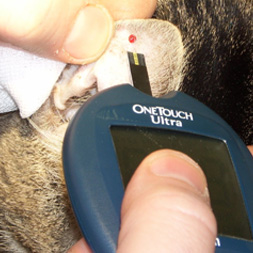Your veterinarian has recommended some bloodwork and laboratory testing. Is this really necessary? What is the point of all of this testing?
It turns out that lab work can give us a great deal of information about your pet’s inner workings. Your pet’s blood values tell us what is going on with many of their organs and systems; kidneys, liver, bone marrow, muscles, bones, endocrine and immune systems and even parasitic infiltration can all be evaluated by bloodwork. Changes over time or values outside of the normal range can demonstrate an abnormality in any of these systems and help your vet create a plan to diagnose and treat them. Urinary abnormalities can show signs of infection, systemic diseases like diabetes or kidney dysfunction, bladder stones or other bladder abnormalities.
Fecal exams, though no fun to collect, can demonstrate parasites, infections, and signs of colon or rectal diseases.
Laboratory evaluations give us the ability to get a medical picture of what is going on inside our pets (even if it means picking up and bringing in some poop.)
Photo credit: Uwe Gille (Own work) [GFDL (http://www.gnu.org/copyleft/fdl.html) or CC BY 3.0 (http://creativecommons.org/licenses/by/3.0)], via Wikimedia Commons

